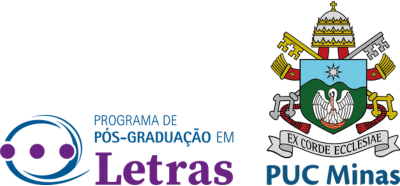A formação crítica do leitor à reflexão dos fatores pragmáticos da textualidade na produção de fake news sobre a covid-19: uma análise linguística textual
DOI:
https://doi.org/10.5752/P.2358-3428.2021v25n54p207-234Keywords:
Covid-19. Fake News. Textual Linguistics.Abstract
In the midst of the pandemic of the new coronavirus (Covid-19), the explosion of information in the media about the disease has intensified the production and dissemination of fake news. Thus, this work, supported by the qualitative research approach, aimed to analyze the critical formation of the reader to the reflection of the pragmatic factors of textuality in the production of fake news about Covid-19. Three publications on coronavirus cure through homemade inputs are analyzed. These publications were checked by the Ministry of Health website and confirmed as fake news. The research was based on Textual Linguistics under the theoretical foundations of Costa Val (1991; 2008), Koch and Travaglia (1993; 2015), Marcuschi (2008), Koch (2014), Koch and Elias (2008), Rodrigues et al. (2009); Santaella (2018), Leite (2019) and Galhardi et al. (2020), Bauman (2001) on fake news and its intensification. It was found that the critical training of readers is still limited, as the producers of fake news use the pragmatic factors of textuality to attribute meanings to what is stated about Covid-19 and gain the cooperation of the reader in the acceptance of its contents. Therefore, this interaction among author / text / reader makes it difficult to combat the health crisis in Brazil.
Downloads
References
ANTIGO SAUDE. Corovírus pode ser curado por uma tigela de água de alho recém-fervida. 2020. Disponível em: https://antigo.saude.gov.br/fakenews/46443-coronavirus-pode-ser-curado-com-tigela-de-agua-de-alho-recem-fervida-e-fake-news. Acesso em: 25 de maio de 2021.
ANTIGO SAUDE. Uísque e mel contra coronavírus. 2020. Disponível em: https://antigo.saude.gov.br/fakenews/46281-uisque-e-mel-contra-coronavirus-e-fake-news. Acesso em: 25 de maio de 2021.
ANTIGO SAUDE. Óleos para combater coronavírus. 2020. Disponível em: https://antigo.saude.gov.br/fakenews/46277-oleos-para-combater-coronavirus-e-fake-news. Acesso em: 25 de maio de 2021.
BAUMAN, Z. Modernidade líquida. Rio de Janeiro, Jorge Zahar, 2001.
COSTA VAL, M. da G. Redação e Textualidade. São Paulo, Martins Fontes, 1991.
COSTA VAL, M. da G. Texto, textualidade e textualização. In: M. L, FERRARO et al. Experiência e prática de redação. Florianópolis, UFSC, 2008, p. 63-85.
EVANGELISTA, O. Apontamentos para o trabalho com documentos de política educacional. In: R. M. DE LIMA ARAUJO; D. DO SOCORRO RODRIGUES (Orgs.), 1ª ed, A pesquisa em trabalho, educação e políticas educacionais. Campinas, Alínea, 2012, p. 52-71.
FREITAS, A. R. R. et al. Análise da gravidade da pandemia de Covid-19. Epidemiol. Serv. Saúde, 29 (2):e2020119, p. 1-5, abril de 2020.
GALHARDI, C.P. et al. Fato ou Fake? Uma análise da desinformação frente à pandemia da Covid-19 no Brasil. Ciência & Saúde Coletiva, 25 (2):4201-4210, p. 4201 - 4210, agosto de 2020.
KOCH, I. V.; TRAVAGLIA, L. C. Texto e Coerência. 2ª ed.; São Paulo, Cortez, 1993.
KOCH, I, V. ELIAS, V.M. Ler e compreender os sentidos do texto. 2ª ed.; São Paulo, Contexto, 2008.
KOCH, I. 2014. O texto e a construção dos sentidos. 10ª ed.; São Paulo, Contexto, 2014.
KOCH, I. V.; TRAVAGLIA, L. C. A coerência textual. 18º ed.; São Paulo, Contexto, 2015.
LEITE, A. P. M. A alfabetização midiática e informacional em tempos de fake news e o legado de Paulo Freire. In: P. R. PADILHA; J. ABREU (Orgs.), Paulo Freire em tempos de fake news [livro eletrônico]: artigos e projetos de intervenção produzidos durante o curso da EaD Freiriana do Instituto Paulo Freire. São Paulo, Instituto Paulo Freire, 2019, p.12-18.
MARCUSCHI, L. A Produção textual, análise de gêneros e compreensão. 3ª ed.; São Paulo, Parábola Editorial, 2008.
PÁDUA, E. M. M. de. Metodologia da pesquisa: abordagem teórico - prática.2ª ed.; Campinas, Papiros, 1997.
RODRIGUES, R. H. et al. Linguística textual. Florianópolis, LLV/CCE/UFSC, 2009.
SANTAELLA, L. A pós-verdade é verdadeira ou falsa? Barueri, Estação das Letras e Cores, 2018.
SANTOS, C. Conheça as fake news mais absurdas já checadas sobre o coronavírus no mundo. 2020. Disponível em:https://www.uol.com.br/tilt/noticias/redacao/2020/08/31/conheca-as-fake-news-mais-absurdas-ja-checadas-sobre-o-coronavirus.htm. Acesso em: 30 de maio de 2021.
VASCONCELLOS-SILVA, P.R.; CASTIEL, L. D. COVID-19. As fake news e o sono da razão comunicativa gerando monstros: a narrativa dos riscos e os riscos das narrativas. Cad. Saúde Pública, 36 (7):e00101920, p.1-12, julho de 2020.
Downloads
Published
How to Cite
Issue
Section
License
By submitting any manuscript (articles, reviews, or interviews) authors automatically assign full copyrights to PUC Minas. Authors are requested to ensure:
• The absence of conflicts of interest (relations between authors, companies/ institutions or individuals with an interest in the topic covered by the article), as well as funding agencies or sponsoring institutions of the research that culminated in the article.
This file is licensed under the Creative Commons Attribution - Share Alike 4.0 International.









